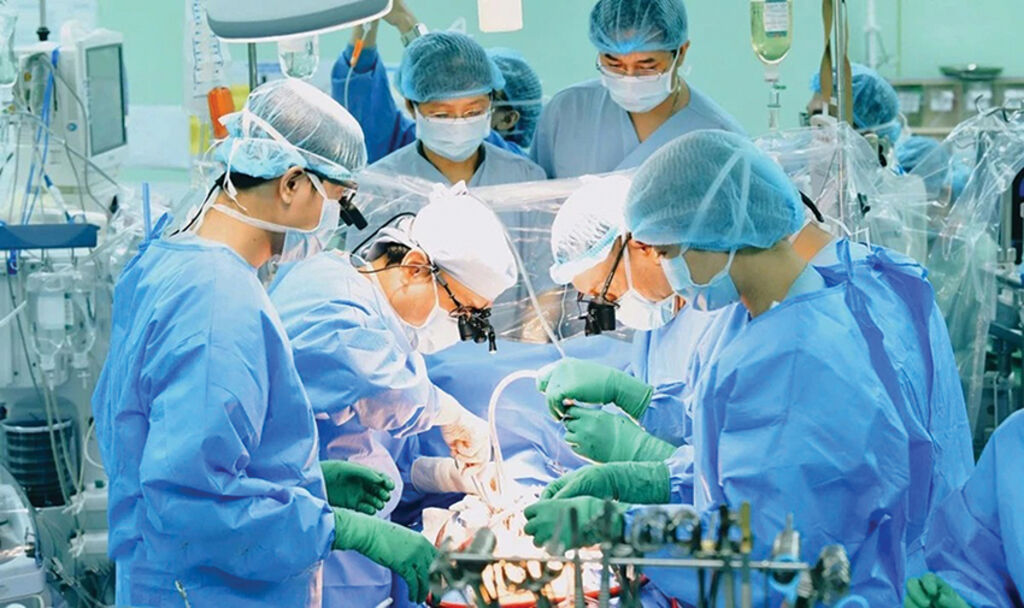 |
| Doctors from the University Medical Center, Ho Chi Minh City, perform a heart transplant surgery__Photo: VNA |
Individuals aged 16 years or older would be allowed to donate tissues while alive, provided that their legal representatives or lawful guardians so agree in writing.
It is one of draft amendments put forth by the Ministry of Health to the 2006 Law on Donation, Removal and Transplantation of Human Tissues and Organs and Donation and Recovery of Cadavers.
As per the draft, all persons would have the right to donate their tissues and organs after death. Particularly for persons aged under 18 years, the donation of tissues and organs after death must be agreed in writing by their legal representatives.
Regarding the right to donate tissues and organs while alive, the draft permits individuals who are aged full 30 years or older and have full civil act capacity to donate their organs while alive to any person in the transplant waiting list without specifying a designated recipient.
Individuals who are aged full 18 years or older and have full civil act capacity might donate their organs while alive to their parents, children or biological siblings. They would also have the right to donate their bodies after death.
For living donors, expenses for medical services related to organ or tissue donation, including heath evaluation, hospitalization, surgery, and follow-up would be paid by the Health Insurance Fund.
In case of posthumous tissue and organ donation, the Health Insurance Fund would cover expenses for resuscitation, evaluation of tissue and organ function for donation, and removal of tissues and organs.
For transplant recipients who are covered by health insurance, the Health Insurance Fund would cover expenses for biological testing, transplantation procedures, post-transplant recovery, periodic follow-up examination, immunosuppressive medication, and transportation of tissues or organs from other healthcare facilities (if any). Meanwhile, those who are not covered by health insurance would have to pay all expenses by themselves.- (VLLF)









